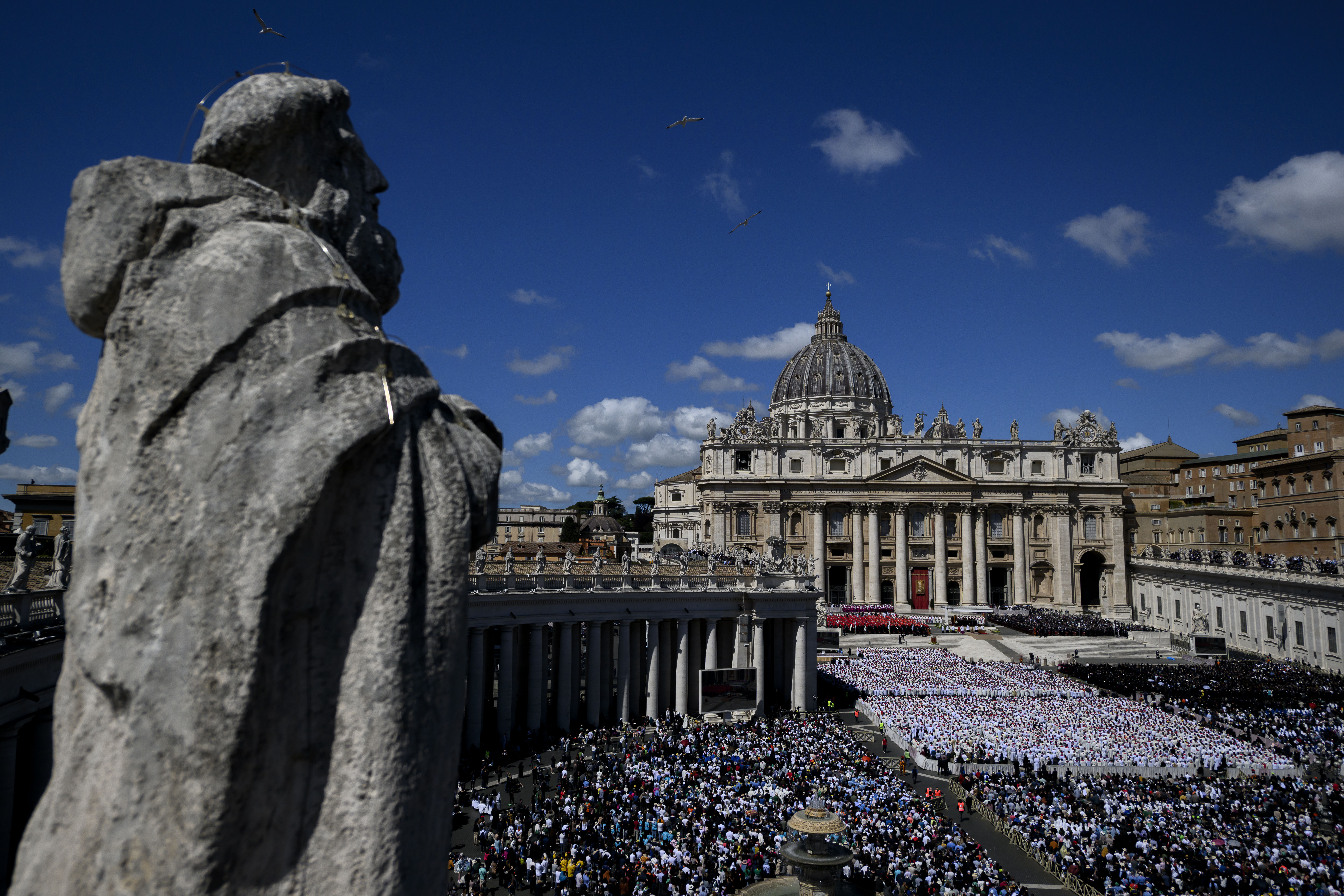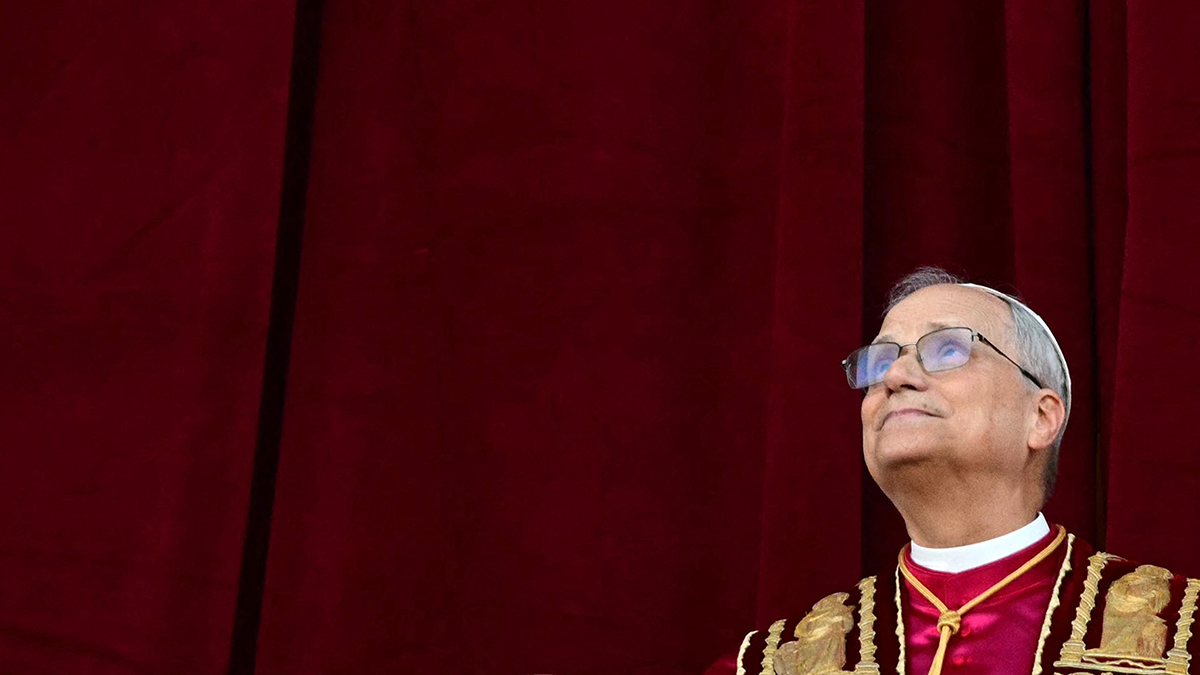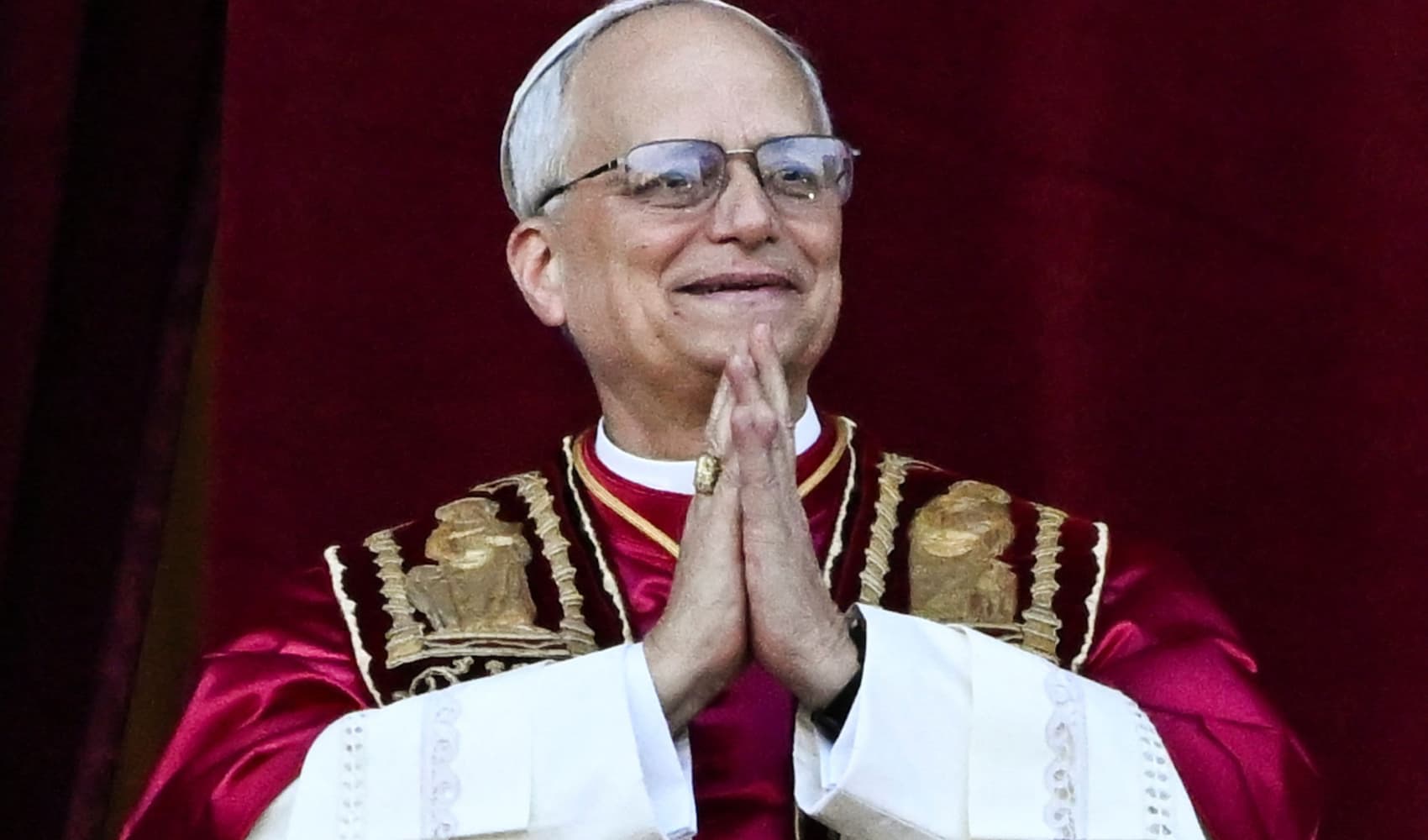Pope Leo XIV: What Would This Name Signify Today?
The Power of a Name: When Will We See Pope Leo XIV?
Introduction: Unveiling the Significance of Papal Names
“Habemus Papam!” Those are arguably some of the most anticipated words in the Catholic Church. Soon after Cardinal Dominique Mamberti announced “Habemus Papam,” which translates to “We have a pope,” from the balcony of St. Peter’s Basilica, the world’s attention turns to the new leader and, equally importantly, the name he chooses. What does that name signify? The name a new pope chooses is often the first clue to his priorities, his vision, and perhaps even his hopes for the Church. But what happens if, say, the newly elected pontiff chooses the name Leo XIV? When was the last time that happened? And what might it mean?
A Tradition Rooted in History: Why Popes Change Their Names
Imagine being elected leader of over a billion people! The sheer weight of history, tradition, and responsibility must be immense. Perhaps that's why the tradition of taking a new name emerged. While early popes indeed used their given names, the practice of adopting a new one began in the 6th century. This tradition became more widespread by the 11th century. Why the change? It's a fascinating mix of respect, symbolism, and even practicality. It allowed new popes to distance themselves from their previous life and embrace their new role as the shepherd of the flock.
Early Examples and Motivations
Early examples like Pope John II (533-535 AD) who was born Mercurius (named after the Roman God Mercury) changed his name to avoid using a pagan name. These kinds of changes started a practice that would eventually become tradition. In those days, it was very important to associate the new leader with the church rather than his individual life.
The Rise of Symbolic Names
As time went on, the reasons for choosing a new name evolved. It wasn't just about avoiding pagan associations anymore. It became a way to honor a predecessor, signal a particular direction for the Church, or invoke the spirit of a beloved saint. Think of it as a carefully chosen brand identity, reflecting the values and priorities of the new pontificate.
The Meaning Behind the Moniker: Decoding Papal Name Choices
Choosing a papal name isn't like picking a favorite color. It's a deliberate act, steeped in meaning and history. For centuries, popes often chose the names of those who elevated them to cardinal, a subtle nod to their mentors and benefactors. However, in the modern era, names have become increasingly symbolic.
Francis: Humility and Service
Pope Francis, for example, invoked the saint known for humility and care for the poor. He aimed to show his commitment to helping the less fortunate, and to take a more humble approach to the Papacy. It was a clear signal that his pontificate would focus on social justice and pastoral care.
Pius: Upholding Tradition
Names like Pius often signal a desire to uphold tradition and maintain the established order. These popes were commonly known for their conservative values, wanting to retain tradition through the Papacy.
John Paul: Reform and Renewal
John Paul suggested a commitment to reforms from the Second Vatican Council, which was called by Pope John XXIII because he thought the church needed “updating.” His choice echoed the spirit of openness, dialogue, and engagement with the modern world that defined Vatican II.
The Leos of History: A Look Back at Past Popes Leo
Before we dive into what a potential Pope Leo XIV might represent, let's take a quick trip down memory lane and explore the legacy of past Popes Leo. What characterized their reigns? What challenges did they face? Understanding their historical context is crucial for understanding the potential significance of a future Leo.
Key Leos and Their Contributions
Several Popes have carried the name of Leo. The most notable are Leo I (Leo the Great) and Leo III. Leo I, the first, is credited with meeting Attila the Hun and persuading him not to sack Rome, and he helped define key doctrines of the Church, such as the nature of Christ. Leo III crowned Charlemagne emperor. They each helped shape the church and history.
Themes and Challenges
Popes called Leo often dealt with doctrinal controversies, barbarian invasions, and the delicate balance of power between the Church and secular rulers. Their pontificates were marked by intellectual rigor, diplomatic skill, and a strong sense of papal authority.
The Last Pope Leo: A Deeper Dive into Leo XIII
Now, let's zero in on the last Pope to bear the name Leo: Leo XIII (1878-1903). He reigned during a pivotal period in history, marked by industrialization, social unrest, and the rise of new political ideologies. How did he navigate these turbulent waters? What were his defining achievements?
Rerum Novarum: A Groundbreaking Encyclical
Leo XIII is best known for his encyclical *Rerum Novarum* ("Of New Things"), which addressed the social and economic issues of the late 19th century. It was a landmark document that laid the foundation for Catholic social teaching, advocating for the rights of workers, the dignity of labor, and the importance of social justice.
Navigating a Changing World
Leo XIII also sought to modernize the Church's approach to science, philosophy, and culture. He encouraged the study of Thomas Aquinas and promoted dialogue between faith and reason. He recognized the importance of engaging with the intellectual currents of his time.
What a Pope Leo XIV Might Signify Today: Speculating on the Future
So, what would a Pope Leo XIV signify in today's world? It's impossible to say for sure, but we can speculate based on the legacy of his predecessors and the challenges facing the Church today. What issues would he prioritize? What tone would he set?
Echoes of the Past, Relevance for the Present
A Pope Leo XIV might signal a renewed focus on Catholic social teaching, addressing issues such as economic inequality, environmental stewardship, and global poverty. He might also emphasize the importance of intellectual engagement, promoting dialogue between faith and reason in a rapidly changing world. He might want to bring to life the words of *Rerum Novarum*, and re-establish the church as an institution of goodwill, and as one that is active in helping its followers.
A Bridge Between Tradition and Modernity
Perhaps a Pope Leo XIV would strive to bridge the gap between tradition and modernity, upholding the core values of the Church while adapting to the challenges of the 21st century. He might seek to foster unity within the Church and promote dialogue with other faiths.
The Power of Symbolism: More Than Just a Name
Ultimately, the choice of a papal name is more than just a personal preference. It's a symbolic act that reflects the hopes, dreams, and priorities of a new pontificate. It's a way for the new pope to communicate his vision for the Church and his commitment to serving God's people. It's a powerful reminder that even in the 21st century, names still carry weight and meaning.
The Unexpected Choice: The Real Story Here
But wait a minute, let's not get carried away! The initial content snippet tells us that Robert Francis Prevost *chose* the name Pope Leo XIV. However, this is a fictional scenario. There is currently no Pope Leo XIV. So, the real question isn't "What does a Pope Leo XIV signify?" but rather, "What if a Pope Leo XIV were to be elected?". This highlights the enduring power of the Papacy and the continued interest in the symbolic weight of the names Popes choose.
The Future of the Papacy: What Names Might We See?
The future of the papacy remains unwritten. While we can speculate on the potential meanings of various papal names, the ultimate decision rests with the next pontiff. One can imagine a Pope Pius XIII signaling a return to traditional values, or a Pope John XXIV embracing the spirit of Vatican II. We are very unlikely to see another pope called John Paul. No matter what name the new pope chooses, their actions, words, and teachings will define their legacy.
Conclusion: Reflecting on the Significance of Papal Nomenclature
In conclusion, the choice of a papal name is a significant event that reveals much about the priorities and vision of a new pontiff. From honoring predecessors to signaling a commitment to reform, papal names are laden with meaning. While the fictional scenario of a Pope Leo XIV allows us to speculate on the potential implications of such a choice, it also reminds us of the rich history and enduring symbolism of the papacy. So, next time you hear the words "Habemus Papam," pay close attention to the name that follows. It might just be the first clue to understanding the future of the Church.
Frequently Asked Questions
Here are some frequently asked questions about papal names and their significance:
- Why do popes change their names?
Popes change their names for various reasons, including honoring predecessors, signaling their priorities, and distancing themselves from their previous life before becoming Pope.
- When did the tradition of changing papal names begin?
The tradition began in the 6th century and became widespread by the 11th century.
- Is there a limit to how many times a papal name can be used?
No, there is no formal limit, although some names have been used more frequently than others. The frequency of a particular name often reflects the legacy and significance of previous popes who bore that name.
- How does a pope choose his new name?
The choice is a personal one, but it is usually influenced by historical context, personal devotion, and the pope's vision for the Church. Prayers are often involved in the choice of name as well.
- What was Pope John Paul II's reason for keeping the name John Paul?
Pope John Paul II was said to be honoring the two popes who preceded him: John XXIII and Paul VI, wanting to follow in their reformist footsteps, thus combining their names in the same way.


